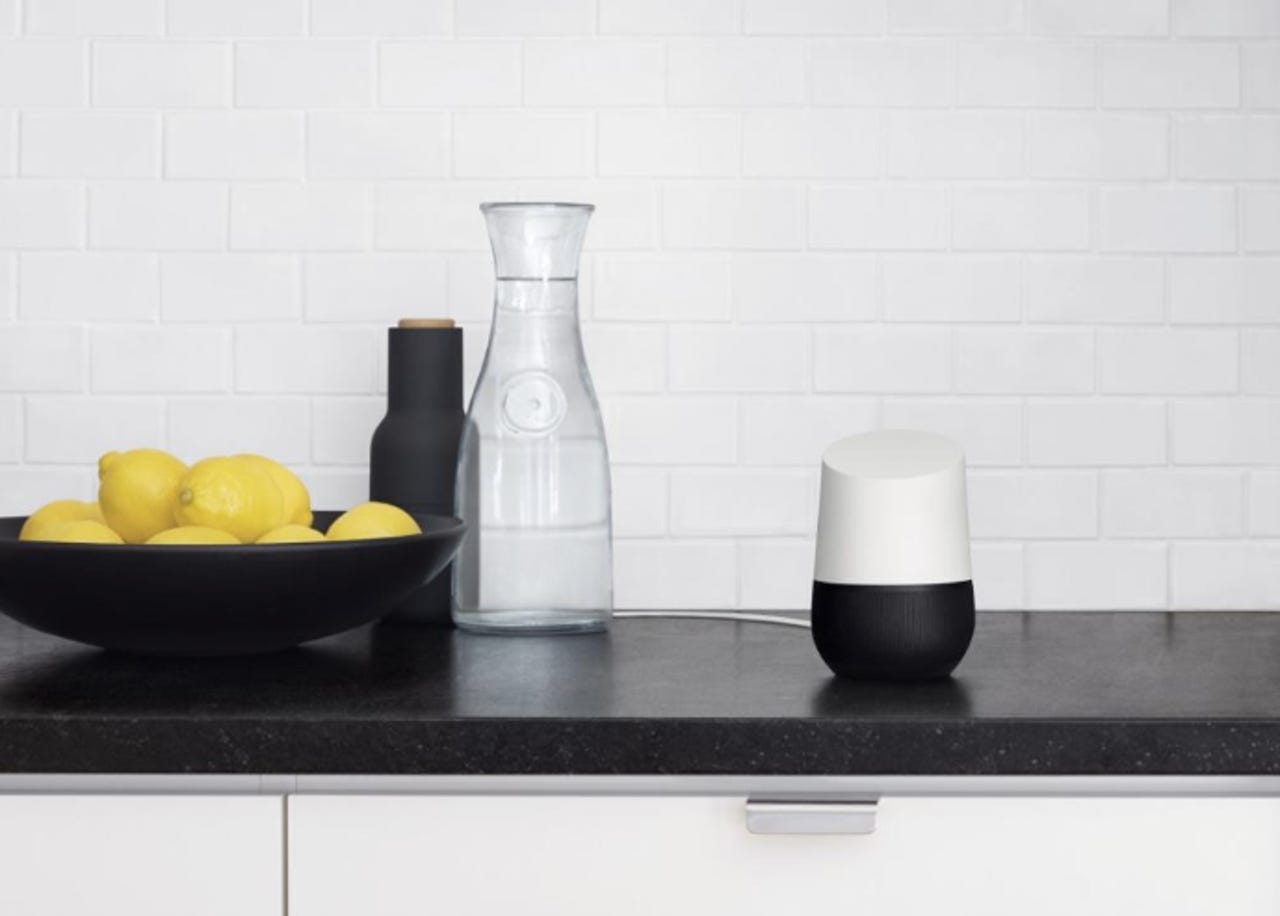Google I/O: Google unveils Google Home, takes aim at Amazon Echo


Google has officially planted a stake in the land of voice activated, smart home virtual assistants.
Google I/O
The tech giant on Tuesday introduced the highly anticipated Google Home device, a rival to Amazon's two-year-old smart-home hub Echo, during its Google I/O developer conference in Mountain View. But don't get too excited just yet -- the device won't launch until later this year at an undisclosed price.
Formerly codenamed Chirp, Google Home serves as a voice-activated virtual agent capable of connecting to devices around the home (such as the Nest thermostat) and completing basic tasks like playing music or searching Google.
The Google Home is essentially a small speaker, cylindrical in shape, equipped with always-on, far-field microphones that can pick up human voice from across the room. The device itself can be personalized with different materials and colors, and according to Google VP of product management Mario Quieroz, can answer a broader range of questions compared to the Amazon Echo.
"Home draws on 17 years of innovation in organizing the world's information to answer questions which are ... difficult for other assistants to handle," Quieroz said.
At the core of Google Home is the just announced Google Assistant, which Google CEO Sundar Pichai said will give users an ongoing, two-way dialogue with Google. Google Assistant uses machine learning and artificial intelligence to get to know users over time, based on their behavior patterns and preferences. The idea is to create a personalized Google for each user, Pichai said.
For now Google is not opening up a developer API for Home, which means it will be limited in the number of smart home devices it can connect to. In a head-to-head matchup against Echo, this could be a disadvantage for Google Home, but Quieroz didn't seem too worried.
"We're competing feature for feature in most of the areas," he said. "And in the areas that really matter to the consumer, we're going to do a better job."
Confidence aside, Google's success in the smart home assistant category is too early to call. According to Forrester mobile analyst Julie Ask, Google had an early and impressive lead in the virtual agent category with GoogleNow, but the platform has evolved too slowly and others, namely Amazon, have caught up.
"I think Amazon surprised a lot of people with the Echo," Ask said. "They built from a media and commerce base rather than virtual assistant. But like Facebook, Apple and others, everyone is heading towards the virtual agent and Google has seemingly let the competition catch up."
If Google Home is handled successfully, however, Ask said the device has the potential to leapfrog Echo.